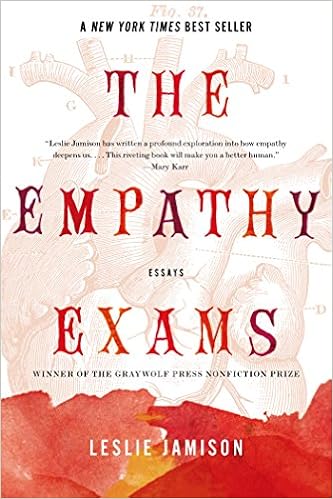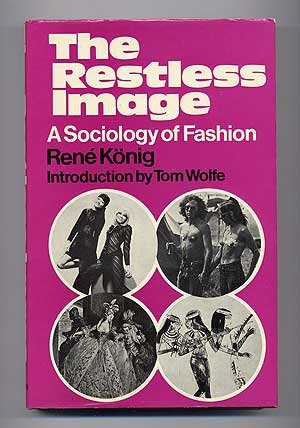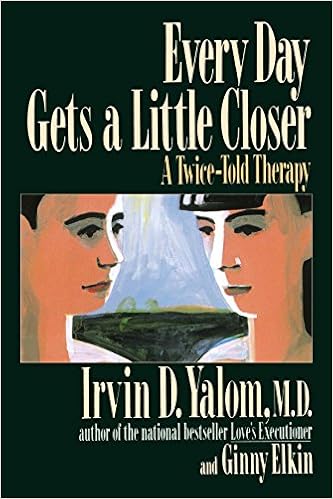



From Benjamin Anastas:
Required reading for our troubled times and an open letter to the nation in the best tradition of James Baldwin.
From Benjamin Anastas:
This underappreciated dissection of Nixon's election in 1968 tells us exactly how our political system has been debased by corporate money and the media's race to the bottom. McGinniss taught at Bennington only for a short time (1982-1984) but his influence on that generation of Bennington writers was enormous.
From Sherry Kramer:
It's about uncertainty...one of my favorite things to think about.
For FWT reading, I recommend the following books I have read and loved recently:
From Ann Pibal:
Two books about environmental issues, the first written by a Bennington alumna.
Summer Brennan, Bennington Class of '01
From Ann Pibal:
And - two more memoirs:
A little over the top in places, sort of like classical scholarship meets "Raiders of the Lost Ark." But what other book can make one desperate to read several different translations of the Iliad? Plus, Nicolson reveals the actual physical location of the mouth of Hell. The best book I read this year.
 The Mountains of California
by
The Mountains of California
by
 Breaking Bread
by
'A series of dialogues between and interviews with two of the foremost black intellectuals in America today, this volume is of enormous importance and offers rewarding reading.' Publishers WeeklyIn this provocative and captivating dialogue, hooks and West grapple with the dilemmas, contradictions, and joys of Black intellectual life. Creating a spiritual, progressive, feminist, and ultimately organic definition of Black intellectuality, they passionately discuss issues ranging in subject matter from theology and the Left, to contemporary music, film, and fashion.
Breaking Bread
by
'A series of dialogues between and interviews with two of the foremost black intellectuals in America today, this volume is of enormous importance and offers rewarding reading.' Publishers WeeklyIn this provocative and captivating dialogue, hooks and West grapple with the dilemmas, contradictions, and joys of Black intellectual life. Creating a spiritual, progressive, feminist, and ultimately organic definition of Black intellectuality, they passionately discuss issues ranging in subject matter from theology and the Left, to contemporary music, film, and fashion.
 Radical Presence
by
Radical Presence is a book about our lives as well as our work, suggesting that the "secrets" of good teaching are the same as the secrets of good living: seeing one's self without blinking, offering hospitality to the alien other, having compassion for suffering, speaking truth to power, being present and being real. These are secrets hidden in plain sight. But in an age that puts more faith in the powers of technique than in the powers of the human heart, it takes the clear sight and courage of someone like Mary Rose O'Reilley to call "secrets" of this sort to our attention. Radical Presence asks, "What might happen if we frame the central questions of our profession as spiritual issues and deal with them in light of our spiritual traditions?" The basis of O'Reilley's remarks is not religious; it is pedagogical. She does not preach; she shares. Writing of the human condition, O'Reilley places herself first in line, not as an ego or leader but as a friend and guide. Over the course of her journey, she seeks to discover what spaces we can create in the classroom that will allow students the freedom to nourish an inner life. This is an important book that will have a significant impact on the way educators view teaching and learning. O'Reilley writes, "Some pedagogical practices crush the soul; most of us have suffered their bruising force. Others allow the spirit to come home: to self, to community, and to the revelations of reality. [This book] is my own try at articulating a space in which teacher and student can practice this radical presence."
Radical Presence
by
Radical Presence is a book about our lives as well as our work, suggesting that the "secrets" of good teaching are the same as the secrets of good living: seeing one's self without blinking, offering hospitality to the alien other, having compassion for suffering, speaking truth to power, being present and being real. These are secrets hidden in plain sight. But in an age that puts more faith in the powers of technique than in the powers of the human heart, it takes the clear sight and courage of someone like Mary Rose O'Reilley to call "secrets" of this sort to our attention. Radical Presence asks, "What might happen if we frame the central questions of our profession as spiritual issues and deal with them in light of our spiritual traditions?" The basis of O'Reilley's remarks is not religious; it is pedagogical. She does not preach; she shares. Writing of the human condition, O'Reilley places herself first in line, not as an ego or leader but as a friend and guide. Over the course of her journey, she seeks to discover what spaces we can create in the classroom that will allow students the freedom to nourish an inner life. This is an important book that will have a significant impact on the way educators view teaching and learning. O'Reilley writes, "Some pedagogical practices crush the soul; most of us have suffered their bruising force. Others allow the spirit to come home: to self, to community, and to the revelations of reality. [This book] is my own try at articulating a space in which teacher and student can practice this radical presence."
From Jean Randich:
It just won the National Book Award. Brief, searing, eye-opening.
 The Restless Image: Sociology of Fashion
by
The Restless Image: Sociology of Fashion
by
From Noah Coburn:
A scholarly study of U.S. military expansion that almost reads like a travel memoir.
From Noah Coburn:
A travel memoir that almost reads like an anti-travel memoir in which Newby's wife is the true hero.
Really worth trying to read the original. Not that hard once you get the hang of it, and you can find many guides online. The joy of it is not the individual propositions, but how the whole thing fits together: there is narrative tension and plot development!
Not many car chases or explosions but still pretty OK.
From Andrew McIntyre:
The strangeness and difficulty of works of lateness.
 Every Day Gets a Little Closer
by
The many thousands of readers of the best-selling Love’s Executioner will welcome this paperback edition of an earlier work by Dr. Irvin Yalom, written with Ginny Elkin, a pseudonymous patient whom he treated--the first book to share the dual reflections of psychiatrist and patient.Ginny Elkin was a troubled young and talented writer whom the psychiatric world had labeled as ”schizoid.” After trying a variety of therapies, she entered into private treatment with Dr. Irvin Yalom at Stanford University. As part of their work together, they agreed to write separate journals of each of their sessions. Every Day Gets a Little Closer is the product of that arrangement, in which they alternately relate their descriptions and feelings about their therapeutic relationship.
Every Day Gets a Little Closer
by
The many thousands of readers of the best-selling Love’s Executioner will welcome this paperback edition of an earlier work by Dr. Irvin Yalom, written with Ginny Elkin, a pseudonymous patient whom he treated--the first book to share the dual reflections of psychiatrist and patient.Ginny Elkin was a troubled young and talented writer whom the psychiatric world had labeled as ”schizoid.” After trying a variety of therapies, she entered into private treatment with Dr. Irvin Yalom at Stanford University. As part of their work together, they agreed to write separate journals of each of their sessions. Every Day Gets a Little Closer is the product of that arrangement, in which they alternately relate their descriptions and feelings about their therapeutic relationship.
I admit that these are "light" reading, in a way, but they are books that touch on extremely meaningful subjects. Yalom is a psychiatrist, now in his eighties, who writes about his experiences with patients, disguising their identities, but dealing in some depth with the life issues their situations raised. He writes extremely well (he has also written novels and is literary by nature), has a lot of wisdom, and has thought long and hard about such things as Love, Loss, and Mortality, making the best of the life one has, and adjusting to whatever reality people happen to be facing (for example, the reality that they didn't have a great childhood, or are dealing with serious illness). The first book is co-written with a patient, alternating his accounts of each session with the patient's own written accounts of each session. (There is a long story behind how this dual writing project originated, which I won't go into.) It is a long slog, but worth it. The other books tell tales of being a therapist/psychiatrist as gripping stories. Yalom also reveals himself in them to a refreshing degree (enough so that he can become annoying) and teaches you what it is like to try to help people cope with their lives. While not on the level of an Oliver Sacks (or a Freud), these are books that deal with universal issues and are quite fascinating and fun to read.